27 Jan 2015 | About Index, mobile, Press Releases
* South American cartoonist and mafia investigator shortlisted for 2015 Freedom of Expression award
* Other nominees include a jailed Moroccan rapper, the lawyers who fought Turkey’s social media ban, and a Mexican news platform fighting cartel-enforced media blackouts
* Judges include Martha Lane Fox, Mariane Pearl, Keir Starmer, and Elif Shafak
A journalist under 24-hour protection because of his reports into the Italian mafia, an Ecuadorian cartoonist facing prosecution for depicting government corruption, and lawyers who challenged Turkey – and won – over its social media ban, are among those shortlisted for the Index on Censorship Freedom of Expression Awards this year.
Drawn from more than 2,000 nominations, the shortlist celebrates those at the forefront of tackling censorship and threats to freedom of expression. Many of the 17 shortlisted nominees are regularly targeted by authorities or by criminal and extremist groups for their work: some face regular death threats, others criminal prosecution.
“The Index Freedom of Expression Awards recognise some of the world’s most courageous journalists, artists and campaigners,” said Jodie Ginsberg, CEO of campaigning charity Index on Censorship. “These individuals and groups often work in isolation, with little funding or support, but they are all driven by the vision of a world in which everyone can express themselves freely – no matter who they are or what they believe.”
Awards are offered in four categories: journalism; arts; campaigning; and digital activism.
Those on the shortlist include Lirio Abbate, an Italian journalist whose investigations into the mafia mean he requires constant protection; Safa Al Ahmad, whose documentary exposed details of a unreported mass uprising in Saudi Arabia; radio station Echo of Moscow, one of Russia’s last remaining independent media outlets; and Rafael Marques de Morais, an Angolan reporter repeatedly prosecuted for his work exposing government and industry corruption.
Arts nominees include Ecuador’s censored cartoonist “Bonil” – who has for more than 30 years critiqued and lampooned the country’s authorities; Moroccan rapper Mouad ‘El Haqed’ Belghouat, whose music challenges poverty and government corruption; Rory “Panti Bliss” O’Neill, a Dublin-based drag artist who speaks out against homophobia; and Malian musicians Songhoy Blues, who fled their country after music was banned. Guitarist Garba Touré was threatened with having his hand cut off.
In the campaigning category, nominees range from lawyers Yaman Akdeniz and Kerem Altiparmak, who successfully overturned Turkey’s social media ban last year; to innovative German anti-Nazi group ZDK; to Amran Abdundi, working on the treacherous Somali-Kenya border to help women and girls who are frequently victims of violence, rape and murder. They also include Abdul Mujeeb Khalvatagr who is working to develop a free media in Afghanistan, and The Union of the Committee of Soliders’ Mothers of Russia – a group dedicated to exposing stories of Russian soldiers, killed in the Ukraine conflict, which the Russian government denies.
The digital activism category, which is decided by public vote, includes investigative news outlet Atlatszo.hu, which is using freedom of information requests to hold the Hungarian government to account; Nico Sell, a US-based entrepreneur and online privacy activist; online map Syria Tracker, which is providing reliable data on human rights abuses in Syria; and Valor por Tamalipas, a crowd-sourced news platform set up to fill a void created by the region’s drug cartel-induced media blackout.
More detail about the nominees is included below.
The winners will be announced at a ceremony at The Barbican, London, on March 18.
The judges for this year’s awards – now in their 15th year – are digital campaigner and entrepreneur Martha Lane Fox; bestselling Turkish novelist Elif Shafak; journalist and campaigner Mariane Pearl; and human rights lawyer Keir Starmer.
For more information, or to arrange interviews with any of those shortlisted, please contact: David Heinemann on 0207 260 2660. Photos of the nominees are available at www.indexoncensorship.org
Notes for editors
The shortlisted nominees:
Journalism
Lirio Abbate (Italy);
Safa Al Ahmad (Saudi Arabia);
Rafael Marques de Morais (Angola);
Echo of Moscow (Russia)
Arts
“Bonil” (Ecuador);
Panti Bliss (Ireland);
Songhoy Blues (Mali);
“El Haqed” (Morocco)
Campaigning
Amran Abdundi (Kenya/Somalia);
Yaman Akdeniz and Kerem Altiparmak (Turkey);
Abdul Mujeeb Khalvatgar (Afghanistan);
Zentrum Demokratische Kultur (Germany);
The Union of the Committee of Soldiers’ Mothers of Russia (Russia)
Digital Advocacy
Atlatszo.hu and Tamás Bodoky (Hungary);
Nico Sell (USA);
Syria Tracker (Syria);
Valor por Tamaulipas (Mexico)
Index on Censorship, founded in 1972 by poet Stephen Spender, campaigns for freedom of expression worldwide. Its award-winning quarterly magazine has featured writers such as Vaclav Havel, Nadine Gordimer, Arthur Miller, Philip Pullman, Salman Rushdie, Aung San Suu Kyi and Amartya Sen.
The Index on Censorship Freedom of Expression Awards are now in their 15th year. Previous winners include Nobel Peace Prize winner Malala Yousafzai, Israeli conductor Daniel Barenboim, and Russian journalist Anna Politkovskaya.
The awards are sponsored by Doughty Street Chambers (sponsors of the Campaigning award); The Guardian newspaper group (sponsors of the Journalism award); Google (sponsors of the Digital Advocacy award); and Sage Publications. The Digital Advocacy award is decided by public vote between January 27 and February 15.
Nominees for the Index on Censorship Freedom of Expression Awards 2015
Journalism
Lirio Abbate
Lirio Abbate is a Rome-based journalist working for the weekly news magazine L’Espresso. He specialises in investigating the criminal activity and political connections of Italian mafia groups, from whom he is routinely subjected to violent threats. Abbate has written four books about mafia groups since 1993. The most recent, Fimmine Ribelli or Rebel Women (2013), illustrates the severe plight of women living under the sway of the ‘Ndrangheta’ – the Calabrian mafia. Abbate is also a leading member of press freedom NGO Ossigeno Per L’informazione (Oxygen via information). In 2011 he founded an anti-mafia literary festival called Trame, which has taken place annually in the heart of Calabrian mafia territory.
Safa Al Ahmad
Safa Al Ahmad has spent the last three years covertly filming an unreported mass uprising in Saudi Arabia’s eastern province. Her 30-minute documentary, Saudi’s Secret Uprising, was broadcast in May 2014, and has drawn wide attention to the violent and bloody protests. Al Ahmad took enormous risks in her regular filming trips. First, as a woman travelling alone, she drew the attention of Saudi officials in a country in which women have limited control over their day-to-day lives. Second, she carried a camera full of footage of dissent. Saudi Arabia is ranked by Freedom House as one of the most restrictive Arabic countries in terms of free expression – Al Ahmad would almost certainly have faced severe punishment if caught filming.
Rafael Marques de Morais
Rafael Marques de Morais is an Angolan journalist and human rights activist. Since 2008 he has run anti-corruption watchdog news site, MakaAngola.org. Marques de Morais exposes government and industry corruption, as well as human rights violations. In 1999, he was arrested and detained for 40 days without charge, and denied food and water for days at a time, following an article critical of the Angolan president. His six-month sentence for defamation was finally suspended on condition that he wrote nothing critical of the government for five years. Within three years he was again reporting abuses. He currently faces nine charges of defamation for reports on human rights abuses committed during diamond mining operations.
Ekho Mosky (Echo of Moscow)
An independent Russian radio station, Echo is one of few media outlets that is critical of Vladimir Putin’s regime and describeded by many as the last bastion of free speech in the country. It has an estimated audience of 7 million people across Russia. Echo was set up in 1990 by radio veterans jaded with Soviet propaganda, and has taken an interrogative stance towards Russia’s government ever since. Its focus is on maintaining balance – it airs pro- and anti-Kremlin voices in equal measure. Editor-in-chief Alexei Venediktov has often battled with Putin. In 2012 Putin remarked that Ekho served foreign interests and “pour[ed] diarrhoea over me day and night”.
Arts
Xavier “Bonil” Bonilla
Bonil is the pen name of Xavier Bonilla, an Ecuador-based editorial cartoonist who draws for several national newspapers, particularly El Universo. For thirty years he has critiqued, lampooned and ruffled the feathers of Ecuador’s political leaders, earning a reputation as one of the wittiest and most fearless cartoonists in South America. More recently, Bonil has gained a new epithet – ‘the pursued cartoonist’ is how Spanish newspaper El Pais styled him in its list of the 12 Latin Americans in 2014 news. Twice in 2014 incumbent president Rafael Correa publicly denounced Bonil and threatened him with legal action – the first case was successful against Bonil, and the second is ongoing.
Mouad “El Haqed” Belghouat
El Haqed, roughly translated as ‘the enraged’, is a Moroccan rapper and human rights activist. His music has publicised widespread poverty and endemic government corruption in Morocco since 2011, when his song ‘Stop the Silence’ galvanised Moroccans to protest against their government. He has been imprisoned on spurious charges three times in as many years, most recently for four months in 2014. Haqed believes that police had been looking for an opportunity to arrest him after the release of ‘Walou’ – Haqed’s 2014 album, which is banned from being sold or played in public. One officer at the scene was heard to say “I have scores to settle with you”. Haqed and his brother were beaten by police as they were detained.
Rory ”Panti Bliss” O’Neill
Rory O’Neill sees his it as his duty as “to say the unsayable”. A Dublin-based stand-up comedian and self-described accidental activist for gay rights, he has performed a comedy drag act under the name Panti Bliss for more than two decades. O’Neill rocketed to international fame in January 2014 after he and national broadcaster RTE were threatened with legal action for defamation following a TV appearance in which he identified homophobic writers and groups in Irish media. RTE edited out the offending segment on its online player, issued an apology and paid six individuals €85,000 of public money to settle the dispute. The apology prompted almost a thousand complaints to the TV station and triggered countrywide debate.
Songhoy Blues
Songhoy Blues is a four-piece “desert blues” band, based in Mali. It is made up of musicians who fled north Mali after militant Islamist groups captured the territory and implemented strict sharia law – including the prohibition of secular music – in spring 2012. Despite the lifting of sharia law many musicians continue to self-censor, fearful of the Islamist groups’ return and retribution. In 2014 Songhoy Blues went on a global tour, and also supported artists such as Damon Albarn and Julian Casablancas across Europe. Mojo magazine has named them one of 10 “new faces of 2015”. Their debut album, Music In Exile, will be released in February, and its lead single – Al Hassidi Terei, produced by Zinner – has received critical acclaim.
Campaigning
Amran Abdundi
Amran Abdundi is a women’s rights activist based in north-eastern Kenya. She runs the Frontier Indigenous Network, an organisation that helps women set up shelters along the dangerous border with Somalia. It offers first aid and support for rape victims, including moving them to a safer part of Kenya. As well as protecting citizens endangered by the guerrilla activities of Al Qaeda-linked group Al Shabaab, the organisation helps those fleeing drought and failed harvests in Somalia. Abdundi has established radio-listening groups for women, in which she encourages them to challenge repression and educates them about diseases such as tuberculosis.
Yaman Akdeniz and Kerem Altiparmak
Yaman and Kerem are cyber-law experts and internet rights activists who have campaigned vigorously against the Turkish government’s increasingly restrictive internet access laws. Together, they have raised repeated objections to controversial internet law 5651. This law ostensibly blocks access to child pornography and other harmful content, but it is also used to censor politically sensitive content such as pro-Kurdish or left-wing websites. It has been used to block around 50,000 websites. Their advocacy efforts, including an appeal to Turkey’s highest court, forced the overturn of blocks on Twitter and YouTube in 2014.
Abdul Mujeeb Khalvatgar
Abdul Mujeeb Khalvatgar is an Afghan journalist and the executive director of the media advocacy group Nai Supporting Open Media in Afghanistan, which works to develop a free media in Afghanistan as the country develops a peacetime society.
A radio journalist for more than 10 years, Khalvatgar is also a member of Afghanistan’s Foundation Open Society Institute, working as media coordinator and acting country manager. Khalvatgar is also an active member of the Access to Information Law Working Group, a group of more than 15 media professionals and activists working for better access to Information Law in Afghanistan.
“Nazis against Nazis” (ZDK)
Rechts gegen Rechts was a guerrilla event that took place in Wunsiedel, Germany, in November 2014. It was designed to peacefully counter an annual neo-Nazi march through the streets of the small town where Rudolf Hess is buried. For every metre the marchers walked, money was raised for an anti-extremism, Nazi-rehabilitation charity ZDK. ZDK was set up in 2003 to tackle all forms of extremism – particularly religious and nationalist extremism. As well as rehabilitating neo-Nazi defectors, it recently began a project called Hayad – meaning ‘life’ in Arabic – which aims to de-radicalise Muslims who want to leave their families and join jihadist groups.
The Union of the Committee of Soldiers’ Mothers of Russia
The Union of the Committee of Soldiers’ Mothers of Russia is an NGO network based in Russia, dedicated to improving transparency and exposing human rights abuses in the Russian military. It aims to provide soldiers’ families with reliable information, kept private by the notoriously secretive Russian military. It also provides legal advice for Russian soldiers and their families, and to conscientious objectors.
The first Soldiers’ Mothers groups were established in 1989, in the last days of the Soviet Union. In 2014, members began revealing that their investigations had found that many wounded or killed Russian soldiers had been fighting in Ukraine.
Digital Activism
Atlatszo.hu and Tamás Bodoky
Atlatszo.hu is an investigative news outlet founded and managed by Tamás Bodoky, the main goal of which is to promote free, transparent circulation of information in Hungary. The website, which receives around 500,000 unique visitors per month, acts as watchdog to a Hungarian government which has increasingly tightened its grip on press freedom in the country. Through it, Bodoky produces investigative reports based on freedom of information requests, and instigates lawsuits in cases where its requests are refused. In 2014, the website has uncovered cases of state control of the media, election fraud, government corruption, tax fraud, and misuse of public funds.
Nico Sell
Nico Sell is a US-based entrepreneur and activist for online privacy and secure digital communication. Sell is the CEO of Wickr, a private messaging app with watertight encryption technology. Messages sent using the app ‘self-destruct’ after a length of time adjusted by the sender – from six days to one second – and are then overwritten by gibberish data on the sender’s and receiver’s phones, making them impossible to recreate. Every year at Defcon, Sell runs a nonprofit training camp for children and teenagers called R00tz Asylum, in which digital skills such as white-hat hacking techniques are taught.
Syria Tracker
Syria Tracker is a crisis-mapping platform, which collates and exhibits live data on human rights abuses and other welfare issues brought about by the Syrian conflict. Reports of killings, rapes, water and food tampering, and chemical attacks ongoing in Syria are geolocated and collated onto a live map by US-based volunteers. Syria Tracker synthesises two pre-existing data-sourcing platforms and this combination makes for meticulous accuracy, since data from one source is triangulated with the other, and unverified information is discarded. The news-tracking tool covers anti- and pro-Assad news sources to reduce potential bias.
Valor por Tamaulipas
Valor por Tamaulipas is a crowd-sourced news platform, based in Mexico and set up in 2012 to fill the void created by the region’s cartel-induced media blackout. Valor’s online followers – more than half a million on Facebook and 100,000 on Twitter – send in reports of cartel-related violence, such as shootings, robberies, or missing people. These reports are immediately curated and disseminated by the page administrator, with a hashtag such as #SDR (“situación de riesgo” i.e. situation of risk) attached. From its inception, Valor por Tamaulipas (which means “Courage for Tamaulipas”) has been under constant threat by cartels.
21 Nov 2014 | Azerbaijan News, News, Politics and Society
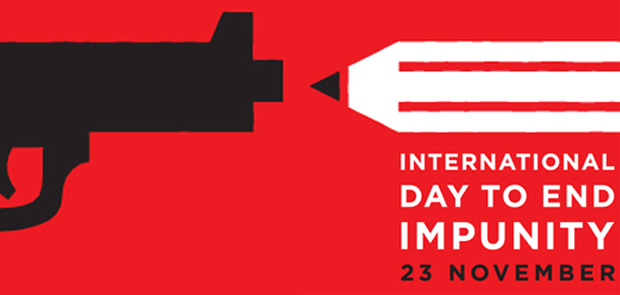
Impunity is a festering sore on freedom of the press. Harassment, violence and murder of journalists are problems around the world — even in Europe, as Index’s project mapping media violations has shown. The numbers speak for themselves: of the 370 media workers murdered in connection with their job over the past ten years, 90% have been murdered without their killers being punished. Many of these crimes aren’t even investigated.
Ahead of the International Day to End Impunity, journalists from across the world told Index why impunity is such a danger to free expression and a free press.
Kostas Vaxevanis, Greek investigative journalist, HOT DOC, and 2013 Index award winner
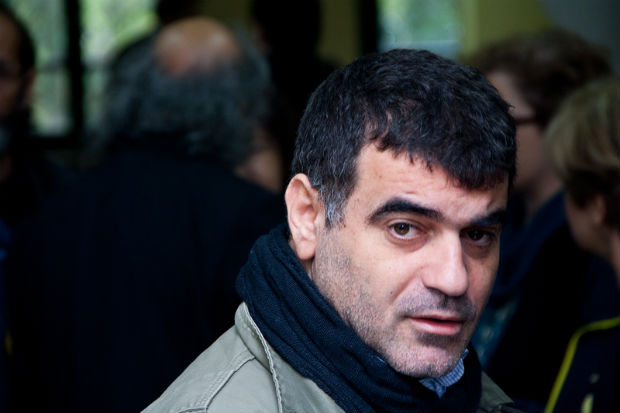
Impunity generates corruption and its enemy is the one thing that exposes and threatens it: the freedom of the press.
The HOT DOC is currently facing 40 lawsuits mainly from ministers and politicians in an attempt to shut us down as journalists. We reveal scandals like one with the minister of justice, a former judge who committed an “error” that granted amnesty to officials who had abused public funds, and instead of answering in public as required as politicians, we are being sued. We pester the courts and despite winning lawsuits, we need more than 80,000 euro per year for court expenses.
Heather Brooke, British-American journalist and 2010 Index award winner
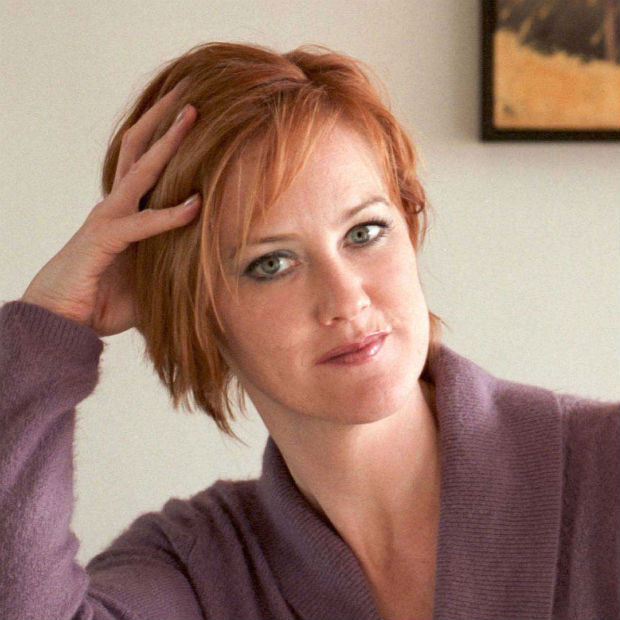
It is a problem that journalists around the world get threatened, intimidated and killed just for doing their job.
These crimes, like any other crime, need to be investigated. If not, it sends a message that this is okay; that the law is only for certain people. It is an implicit acceptance of this behaviour.
If we want to have a strong press, threats, intimidation and murder of journalists can’t be seen to be implicitly condoned by the state. It’s a dangerous message. It makes people frightened to ask tough questions, and if that happens, you are on the way to shutting down a robust press.
Kareem Amer, Egyptian blogger and 2007 Index award winner
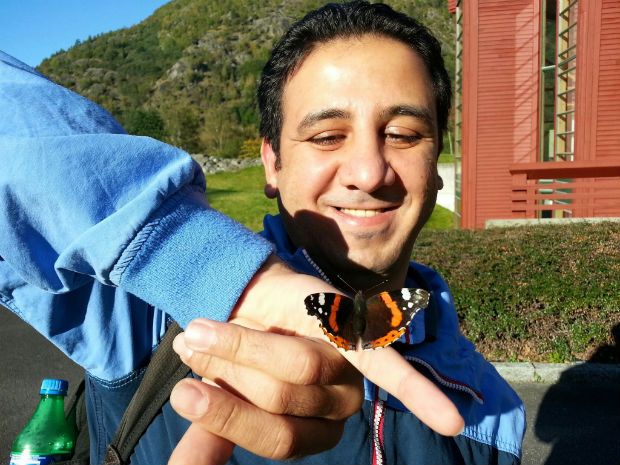
I come from a country where we have a lack of justice. The executive power controls the parliament and the justice system. People feel that if they get mistreated or oppressed by those in power nothing will protect them or bring them justice.
Not only people who express their opinions suffer from a lack of justice. People from different backgrounds who have a different way of thinking and different interests also don’t trust the justice system. Those who have more power can easily avoid punishment and take revenge against victims who tried to get their rights through judiciary system.
Officially, police officers don’t have any kind of formal immunity. According to the law they can be questioned if they violate the rights of people by torturing or murdering. But, in fact, all those accused of killing protesters and torturing prisoners managed to avoid being punished, with a few exceptions.
I feel that it’s not safe to express your opinions freely in a country where people can easily avoid punishment.
I have been sentenced to four years in jail for writing two articles and publishing them on the internet, and during that time I have been through physical violence and mistreatment committed by security forces. I reported it but no one has been questioned or punished. That made me feel that there is no justice in my country and that it is easy to be humiliated and tortured and you will not get protected, since the judiciary system is practically part of the executive power and the judges do what the authorities want them to do.
Rahim Haciyev, Azerbajiani journalist and acting editor of 2014 Index award winner Azadliq

Rahim Haciyev, deputy editor-in-chief of Azerbaijani newspaper Azadliq (Photo: Alex Brenner for Index on Censorship)
Freedom of expression is the basis of all other rights and freedoms. Free speech is something all authoritarian regimes are worried about as it threatens their existence. That is why freedom of expression is specifically targeted by authoritarian regimes. If there are no free people, there is no freedom of expression. Free speech is a precondition for journalists to be able to work in full strength and thus fulfill their functions in society. Authoritarian regimes organise permanent attacks on journalists with impunity. A free journalist armed with freedom of expression is a threat to an authoritarian regime, this is why perpetrators receive awards, not punishment for oppressing journalists’ rights. This process leads to self-censorship, and journalists stop being carriers of truthful information, which in the end affects society.
Nazeeha Saeed, award-winning Bahraini journalist, who was tortured in police custody
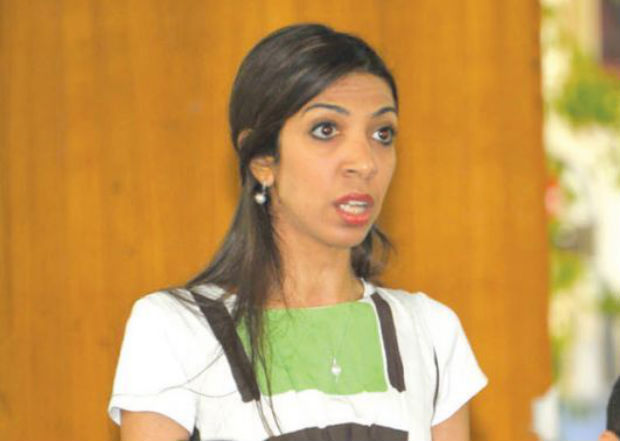
Impunity is a threat to free expression because journalists and people who report the facts on the ground will feel danger, and if no one gets punished for crimes against journalists or others it establishes a systematic impunity culture. Feeling insecure is something bad, it stops people from having a normal life, functioning and expressing themselves.
Endalk Chala, Ethiopian blogger and co-founder of the Zone9 blogging collective (of which six members are currently imprisoned for their writing)
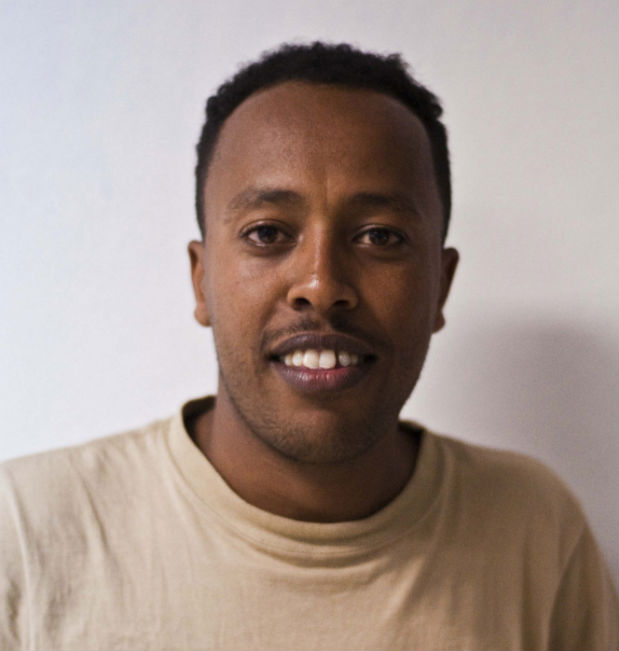
Impunity is a threat for free expression on many levels. In my experience I have seen impunity when it cultivates self-censorship. Let’s take the case of Zone9 bloggers. Since their arrest there are a lot of people who tried to visit them in prison, take a picture of them, attend their trial and tweet about their hearings but all of these have invited very bad reactions from the Ethiopian police.
Some were arrested briefly, others were beaten and it has become impossible to attend the “trial” of the bloggers and journalists. No action was taken by the Ethiopian courts against the bad actions of the police even though the bloggers have contentiously reported the kinds of harassment. As a result, people have stopped tweeting, taking pictures and writing about the bloggers. Apparently, the volume of the tweets and Facebook status updates which comes from Ethiopia has dwindled significantly. People don’t want to risk harassment because of a single tweet or a picture. This self-censorship could be attributed to impunity, which is pervasive in Ethiopia.
Impunity also causes a lack of trust in the Ethiopian judicial system. I don’t trust the independence of the Ethiopian justice system. I have never seen a police man/woman or a government authority being prosecuted for their bad actions against journalists. The Ethiopian government has been prosecuting hundreds of journalists for criminal defamation, terrorism and inciting violence but not a single government person for violating journalists’ rights. This tells you a lot about the compromised justice system of the country.
Andrei Soldatov, Russian investigative journalist and co-founder and editor of Agentura.Ru
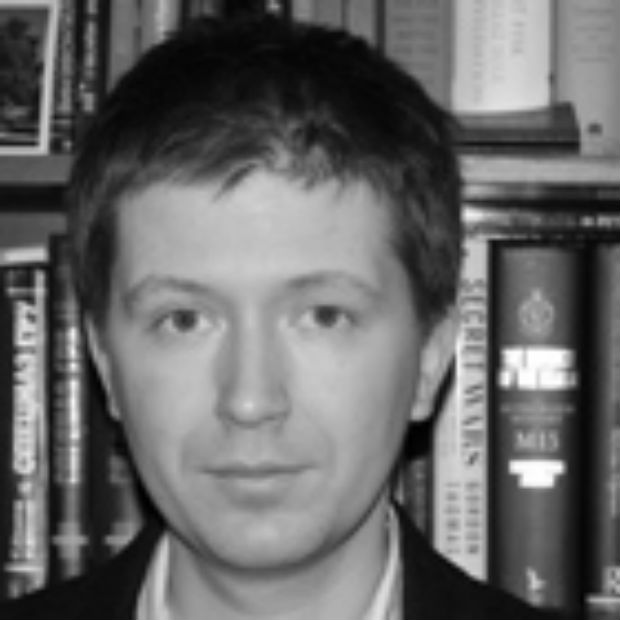
Russia is known for its traditions of self-censorship. Despite what the laws say, the rules are explained in a quiet voice in some unmarked cabinets. Sometimes the rules are even not explained, and journalists, editors and owners of media have to constantly guess what is allowed at that moment. Not everyone is allowed to ask directly, so we are all in the game about signals sent by the authorities.
Journalists are beaten and killed in Russia, and this provides plenty of room to send such signals to the journalistic community. You don’t need to explain that investigative reporting in the North Caucasus is not allowed anymore: you just need to turn the investigation of Anna Politkovskaya’s assassination in 2006 into a show trial, where the assassins are duly found guilty, but the question of masterminds is never answered. You could be sure, the signal would be taken correctly.
Fergal Keane, Irish journalist, BBC foreign correspondent and 2003 Index award winner
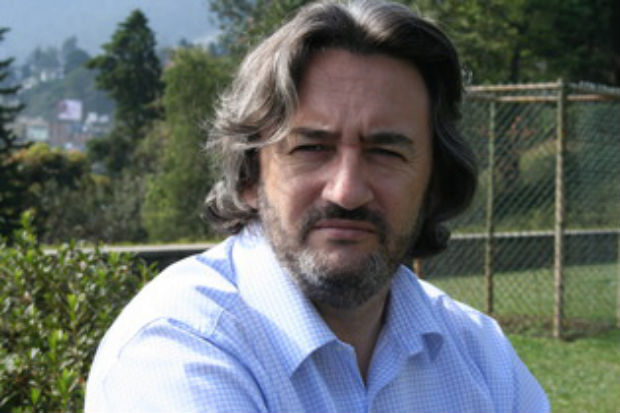
Impunity allows the enemies of free speech to threaten, torture and kill journalists secure in the knowledge they will never be called to account. I can’t think of a greater threat.
Veran Matic, B92 board of directors chairman and B92 news editor-in-chief
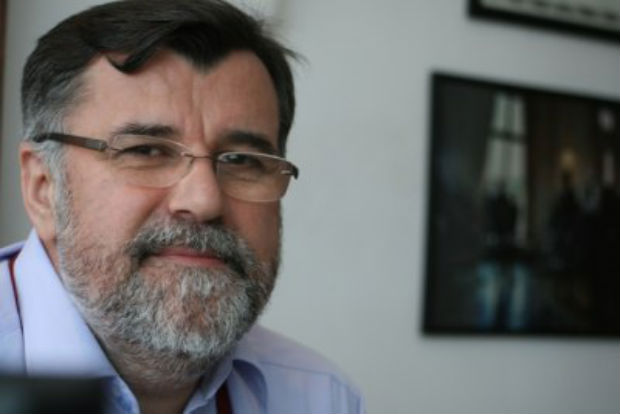
In my 25 years of experience in Serbia, I have been editor-in-chief of a media outlet that was banned on several occasions and I have been arrested.
Impunity directly encourages and expands violence towards journalists. The culture of producing fear is the most efficient form of censorship. One unsolved murder creates space for implementing the next one without any threat for the executioners. In the meantime, the media gets killed/eliminated in the process.
The lack of discontinuity with Slobodan Milosevic’s authoritarian regime had left room for impunity to remain intact.
Less than two years ago, I decided to make a kind of a breakthrough when it comes to impunity. I proposed the establishment of a mixed commission composed of journalists, members of the police and members of the security information agency. We managed to bring the 1999 murder of Slavko Curuvija to a phase where official indictment was brought, along with arrest of all suspects in this murder case. The 2001 murder of our colleague Milan Pantic is also in the final stage of investigation. A 1994 assassination — of Dada Vujasinovic — is being reviewed by the National Forensic Institute from The Hague because local institutions have compromised themselves in this case.
In the same way as impunity restricts freedom of speech, solving of these cases, at least 20 years later, will surely contribute to journalists being encouraged to do their job in the best possible way. Of course, I am not counting here on the new problems with which journalists and media face, and that call for finding new models of financing high quality journalism for the sake of public interest, worldwide.
The team behind Pao-Pao, a Chinese website focusing on internet freedom issues
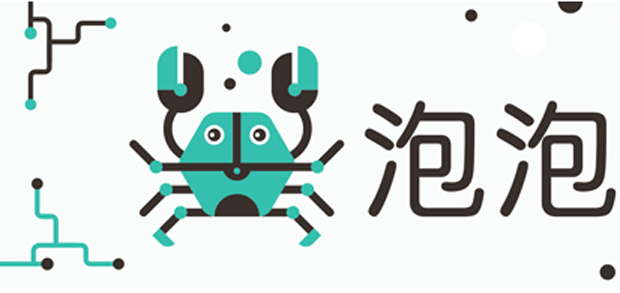
This year, we have seen a rising number of Chinese journalists, academics and human rights lawyers detained, threatened and arrested simply for speaking out online. While Chinese regulations on freedom of speech need to be closely examined, tech companies also play an important role in the deterioration of freedom of speech in China.
While Chinese tech companies are under the tight control of the Chinese authorities, there exists a culture of impunity in the western tech companies, especially when they are doing business in China. When we worked with our partner GreatFire to launch a FreeWeibo iOS application last year (an app to deliver uncensored content from Weibo, the largest social media platform in China), Apple decided to remove the app from their Chinese iTunes store. The only reason given was that Apple received a request from the Chinese authorities. This June, LinkedIn censored user posts deemed sensitive by the Chinese government on the global level, far beyond Beijing’s censorship requirement, even though LinkedIn does not have servers in China.
It would be the start of the end if these global tech companies start removing content simply because they do not want to upset their business relationships with China. It is crucial to hold these companies accountable for their behaviour. Otherwise it will further erode freedom of expression, not only for China, but also for the whole world.
The International Day to End Impunity was set up in 2011 by free speech network IFEX, of which Index on Censorship is a member, with the aim of demanding accountability and justice on behalf of those “targeted for exercising their right to freedom of expression”.
This article was originally posted on 21 November 2014 at indexoncensorship.org. It was updated at 14:09, 24 November to include the response from Pao-Pao.
6 Nov 2014 | News, Politics and Society
![People taking part in the funeral procession of Lasantha Wickrematunge (By Indi Samarajiva [CC-BY-2.0 (http://creativecommons.org/licenses/by/2.0)], via Wikimedia Commons](https://www.indexoncensorship.org/wp-content/uploads/2014/11/Lasantha_Wickrematunge_funeral_banners_1.jpg)
People taking part in the funeral procession of murdered journalist Lasantha Wickrematunge (Photo by: Indi Samarajiva [CC-BY-2.0], via Wikimedia Commons)
This would be no defence for Lasantha. President Mahinda Rajapaksa repeatedly referred to him as a “terrorist journalist” and “Kotiyek” (a Tiger).
According to exiled journalist Uvindu Kurukulasuriya, shortly before Lasantha was killed, the president offered to buy the Sunday Leader, with the intention of muting its voice. Lasantha declined the generous offer. On 8 January 2009, he was shot dead.
Days later, an astonishing editorial, written by Lasantha before his death, appeared in the Sunday Leader, and subsequently in newspapers throughout the world. After describing his pride in the Sunday Leader’s journalism, Wickrematunge wrote chillingly: “When finally I am killed, it will be the government that kills me.”
Lasantha’s murder was shocking. As was the murder of Hrant Dink, the Armenian editor who “insulted Turkishness” by daring to speak of the genocide of his people; as was the murder of Anastasia Barburova, the young Novaya Gazeta reporter who investigated the Russian far right; as was the murder of Martin O’Hagan, who took on the criminality of Northern Ireland’s loyalist gangs. As were the murders of the dozens of Filipino journalists killed in the Maguindanao massacre in 2009, too numerous to name, caught up in a ruthless turf war.
Then there are the reporters killed in war zones. The conflict in Syria has been a killing field for journalists. Where once the media were seen as protected, even potential allies, now they are seen as targets. The killings of Steven Sotloff and James Foley by ISIS in Iraq brought back memories of the beheading of Daniel Pearl in Pakistan in 2002. As Joel Simon of Committee to Protect Journalists relates in his forthcoming book, the New Censorship, that crime marked a turning point. In the Pearl case, even Osama bin Laden, who viewed the media as a potential tool in his global war, was shocked by the tactic employed by his lieutenant Khalid Sheikh Mohammed, who claimed to have carried out the murder himself. From that point on, journalists were not just fair game, but trophies.
As money is drained from news, many organisations choose not to send correspondents to areas where reporters are needed most. Too dangerous, too expensive. As a result, freelancers, local journalists and fixers take ever greater risks. Under-resourced, undersupported and out on a limb, they are picked off.
Regional journalists covering tough domestic beats are easy prey. In Mexico, drug cartels boast of their ability to murder reporters. In Burma, the army kills a reporter who dares report its activities.
The numbers are horrifying: over 1,000 media workers have been killed because of their work since 1992.
Every single time, the message is sent: don’t get involved; don’t ask questions; don’t do your job. No journalism here. No inconvenient truths, no dissenting voices.
With rare exceptions, those responsible for these crimes act with impunity. Sometimes, as in the case of Anna Politkovskaya, outspoken on war crimes in Chechnya, the man who pulled the trigger is traced but those who gave the orders remain untouched. In over 90 per cent of cases of attacks on journalists, there are no convictions.
There is no greater infringement of human rights than to deliberately take an innocent life. The killing of a journalist also signals contempt for the concept of free expression as a right. As the United Nation’s Plan of Action on the Safety of Journalists and the Issue of Impunity, states, violent attacks on journalists and free expression do not happen in a vacuum: “[T]he existence of laws that curtail freedom of expression (e.g. overly restrictive defamation laws), must be addressed. The media industry also must deal with low wages and improving journalistic skills. To whatever extent possible, the public must be made aware of these challenges in the public and private spheres and the consequences from a failure to act.”
In that famous final editorial, Lasantha Wickrematunge wrote: “In the course of the last few years, the independent media have increasingly come under attack. Electronic and print institutions have been burned, bombed, sealed and coerced. Countless journalists have been harassed, threatened and killed. It has been my honour to belong to all those categories.”
Like many journalists, Lasantha prided himself on bravery: there is no higher compliment in the profession than to call a colleague “courageous”.
But there is a danger in this that we create martyrs: that we become enamoured of the idea that a good journalist should die for the cause. That persecution and suffering are marks of valour.
They are not. Journalism should be intrepid, of course, but we shouldn’t accept the idea that intrepid journalism comes with a price. Journalism, the exercise of free expression, is a basic right both for practitioners and for the readers, viewers and listeners who benifit from it. They should be able to practice this right without fear of persecution from states, criminals or terrorists. If they are to suffer, their oppressors must face justice.
Correction 10:02, 10 November: An earlier version of this article stated that a government minister offered to buy the Sunday Leader.
Index on Censorship is mapping harassment and violence against journalists across the European Union and candidate countries at mediafreedom.ushahidi.com.
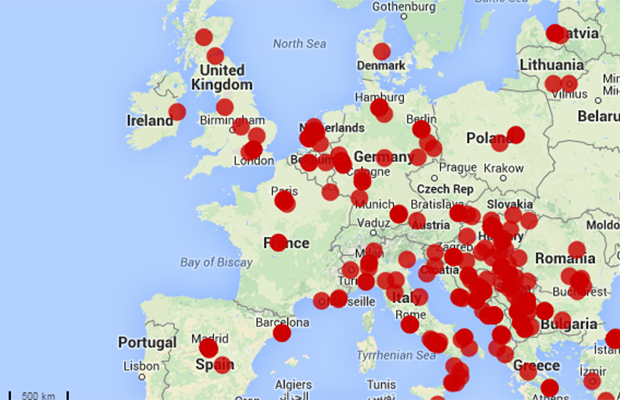
This article was posted on 6 November 2014 at indexoncensorship.org
15 Oct 2014 | Press Releases, Uncategorized
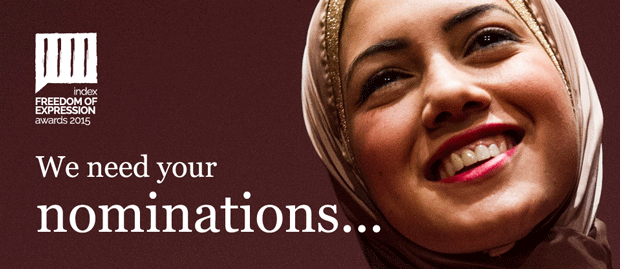
- Awards honour journalists, campaigners and artists fighting censorship globally
- Judges include journalist Mariane Pearl and human rights lawyer Sir Keir Starmer
- Nominate at www.indexoncensorship.org/nominations
Beginning today, nominations for the annual Index on Censorship Freedom of Expression Awards 2015 are open. Now in their 15th year, the awards have honoured some of the world’s most remarkable free expression heroes – from Israeli conductor Daniel Barenboim to Syrian cartoonist Ali Farzat to education activist Malala Yousafzai.
The awards shine a spotlight on individuals fighting to speak out in the most dangerous and difficult of conditions. As Idrak Abbasov, 2012 award winner, said: “In Azerbaijan, telling the truth can cost a journalist their life… For the sake of this right we accept that our lives are in danger, as are the lives of our families. But the goal is worth it, since the right to truth is worth more than a life without truth.” Pakistani internet rights campaigner Shahzad Ahmad, a 2014 award winner, said the awards “illustrate to our government and our fellow citizens that the world is watching”.
Index invites the public, NGOs, and media organisations to nominate anyone they believe deserves to be part of this impressive peer group: a hall of fame of those who are at the forefront of tackling censorship. There are four categories of award: Campaigner (sponsored by Doughty Street Chambers); Digital Activism (sponsored by Google); Journalism (sponsored by The Guardian), and the Arts. Nominations can be made online via http://www.indexoncensorship.org/nominations
Winners will be flown to London for the ceremony, which takes place at The Barbican on March 18 2015. In addition, to mark the 15th anniversary of the Freedom of Expression awards, Index is inaugurating an Awards Fellowship to extend the benefits of the award. The fellowship will be open to all winners and will offer training and support to amplify their work for free expression. Fellows will become part of a world-class network of campaigners, activists and artists sharing best practice on tackling censorship threats internationally.
Jodie Ginsberg, CEO of Index, said: “The Index Freedom of Expression Awards is a chance for those whom others try to silence to have their voices heard. I encourage everyone, no matter where they are in the world, to nominate a free expression hero.”
The 2015 awards shortlist will be announced on January 27th 2015. Judges include journalist Mariane Pearl and human rights lawyer Sir Keir Starmer. The public will be asked to participate in selecting the winner of the Google Digital Activism award through a public vote beginning January 27th 2015. Sir Keir said: “Freedom of expression is part of the bedrock of civilised, democratic society. The Index on Censorship Awards have a material influence on promoting such freedom and both celebrating and protecting those who fight against censorship worldwide. That’s why Doughty Street Chambers chooses Index as its principal charity.”
For more information please contact David Heinemann: [email protected]
_______________________________________________________________________
NOTES FOR EDITORS
About Index on Censorship:
Index on Censorship is an international organisation that promotes and defends the right to freedom of expression. The inspiration of poet Stephen Spender, Index was founded in 1972 to publish the untold stories of dissidents behind the Iron Curtain and beyond. Today, we fight for free speech around the world, challenging censorship whenever and wherever it occurs. Index believes that free expression is the foundation of a free society and endorses Article 19 of the Universal Declaration of Human Rights, which states: “Everyone has the right to freedom of opinion and expression.”
About The Index on Censorship Freedom of Expression Awards:
The Index Freedom of Expression Awards recognise those deemed to be making the greatest impact in tackling censorship in their chosen area.
Awards categories:
Journalism – for impactful, original, unwavering journalism across all media (sponsored by The Guardian).
Campaigner – for campaigners and activists who have fought censorship and who challenge political repression (sponsored by Doughty St Chambers).
Digital Activism – for innovative uses of new technology to circumvent censorship and foster debate (sponsored by Google).
Arts – for artists and producers whose work asserts artistic freedom and battles repression and injustice.
Previous award winners include:
Journalism: Azadliq (Azerbaijan), Kostas Vaxevanis (Greece), Idrak Abbasov (Azerbaijan), Ibrahim Eissa (Egypt), Radio La Voz (Peru), Sunday Leader (Sri Lanka), Arat Dink (Turkey), Kareen Amer (Egypt), Sihem Bensedrine (Tunisia), Sumi Khan (Bangladesh), Fergal Keane (Ireland), Anna Politkovskaya (Russia), Mashallah Shamsolvaezin (Iran)
Digital/New Media: Bassel Khartabil (Palestine/Syria), Freedom Fone (Zimbabwe), Nawaat (Tunisia), Twitter (USA), Psiphon (Canada), Centre4ConstitutionalRights (US), Wikileaks
Advocacy: Malala Yousafzai (Pakistan), Nabeel Rajab (Bahrain), Gao Zhisheng (China), Heather Brooke (UK), Malik Imtiaz Sarwar (Malaysia), U.Gambira (Burma), Siphiwe Hlope (Swaziland), Beatrice Mtetwa (Zimbabwe), Hashem Aghajari (Iran)
Arts: Zanele Muholi (South Africa), Ali Farzat (Syria), MF Husain (India), Yael Lerer/Andalus Publishing House (Israel), Sanar Yurdatapan (Turkey)
You have received this email because email address ‘[email protected]’ is subscribed to ‘AWARDS 2015 Call For Nominations’.












![People taking part in the funeral procession of Lasantha Wickrematunge (By Indi Samarajiva [CC-BY-2.0 (http://creativecommons.org/licenses/by/2.0)], via Wikimedia Commons](https://www.indexoncensorship.org/wp-content/uploads/2014/11/Lasantha_Wickrematunge_funeral_banners_1.jpg)

